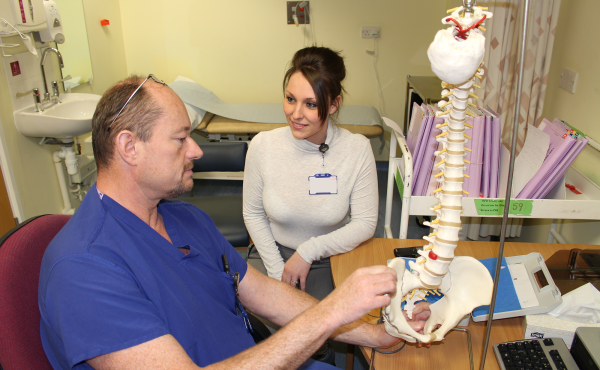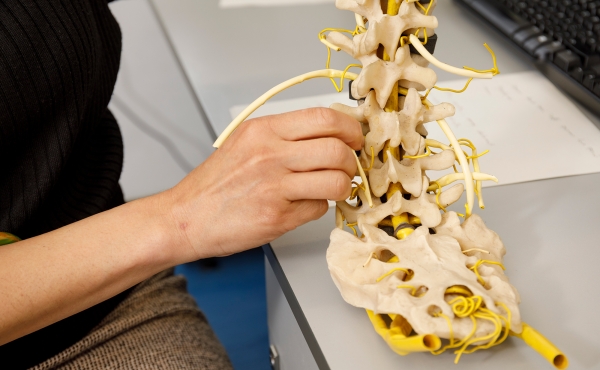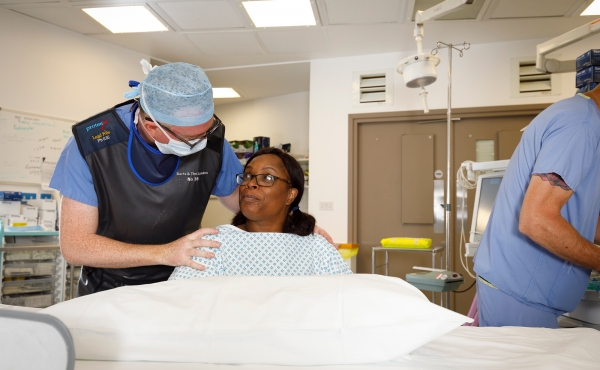Paediatric pain training and retraining
Dr Paul Rolfe recounts his journey into paediatric pain after seven years as a consultant in his article 'Training in Paediatric Pain Medicine'
"... exposure to both Paediatric and Adult Pain Medicine is invaluable for those who wish to pursue an interest in specialist paediatric Pain Medicine. They are not completely separate entities; there are transferable skills to be learnt from each discipline. Rather like the sub-specialties of anaesthesia, the valuable experience is in learning
how to use more general principles, skills and knowledge and apply them to a specific population. "
The Faculty guidance on levels of competencies required for paediatric Pain Medicine, endorsed by the Association of Paediatric Anaesthetists of Great Britain and Ireland. The core competencies, for all Pain Medicine practitioners, are incorporated into the 2021 Stage 3 Special Interest Area (SIA) in Pain Medicine of the curriculum. In addition, the Faculty published competencies for practitioners in Pain Medicine who are involved in a paediatric pain service or lead transition of adolescents to adult services. These form the basis for the paediatric component of the SIA in Pain Medicine training.
Stage 3 SIA Pain Medicine Trainees
All Stage 3 SIA Pain Medicine trainees receive training in core paediatric competencies, although most will not provide a paediatric Pain Medicine service in their subsequent clinical practice. However, these specialists may occasionally need to be involved in paediatric pain cases and this core knowledge and understanding is important for initial management and making timely and appropriate referrals to specialised paediatric pain services.
Guidance on how paediatric competencies can be achieved in SIA Pain Medicine
SIA Pain Medicine – Key Capability I - (Manages pain in paediatric patients (chronic pain)
- Completion of RCPCH e-learning package on paediatric pain management. This is comprehensive, freely accessible and detailed below. Time commitment 2.5-3 hours.
- If attachments are difficult to arrange due to geography and honorary contracts, an observer contract for to 2 days (4 sessions) should facilitate easier attendance at the specialist centres and reduce the administrative burden on trainees, hospitals and trainers. To consolidate the clinical experience the following arrangements are recommended:
- Attendance at 3 paediatric chronic pain clinics. We would strongly recommend that this be physical presence, but virtual presence may be acceptable if there is no alternative option. Attendance at these clinics would typically represent 6 new and 6 review consultations.
- Attendance at 1 paediatric pain MDT meeting in person or virtually.
- Competencies relating to safeguarding in children and pain assessment in children are encompassed within other stages of the anaesthesia curriculum. If these are achieved in other stages of training they would satisfy the minimum paediatric requirements of the general pain consultant.
SIA Pain Medicine – Key Capability J - (Manages pain in paediatric patients (acute pain))
- Completion of RCPCH e-learning package on paediatric pain management which is freely accessible and detailed below. There is a module titled ‘acute pain in neonates, children and young people’.
- Acute pain management is fundamental to the care of anaesthetising children.
- Stage 3 learning outcomes in paediatric anaesthesia (14.9.12 key capability N) – Provide safe anaesthetic care for common non-complex and emergency surgical procedures aged one year to three years - supervision level 2b. For ages 3 years and over, this is supervision level 3.
- Stage 3 learning outcomes in pain (14.13.2 key capability C – Demonstrate safe effective pharmacological management of acute and procedure pain in all age groups. This is supervision level 4.
- Through anaesthetic training, trainees should be familiar with multimodal analgesia, common nerve blocks in children, PCAs, NCAs, epidural management and pain assessment in children. The supervision level for this key capability is 2b.
-
We would encourage engagement with the paediatric resources on FPMLearning.
-
Recommendation that any planned update on the ‘Guidance on Competencies for Paediatric Pain Medicine’ are more reflective of the structure of the new syllabus and with a greater emphasis on important key knowledge and practical management rather than evidence and early developmental biology.
RCPCH Learning resource
- The RCPCH has a freely accessible e-learning package on paediatric pain management. The authors include consultants in paediatric pain medicine who are part of the FPM. The modules take 2.5-3 hours to complete and cover the following:
- Acute pain in neonates, children and young people
- The biopsychosocial assessment of chronic pain
- Neuropathic pain conditions
- Psychological and physical therapies in pain management
- Pharmacology and prescribing in paediatric pain management
- Case studies
- Although similar resources exist on e-PAIN and eLA this represents the best form of the currently available e-learning material suitable for all pain trainees at a suitable level with a reasonable time commitment.
Specialist Paediatric Pain Medicine training
There are relatively few specialised paediatric Pain Medicine services and these are mainly located in specialist paediatric centres. The paediatric Pain Medicine specialists are usually paediatric anaesthetists who have undertaken advanced training, or the equivalent, in both paediatric anaesthesia and pain medicine. The number of these specialists is very small.
The Faculty advises the following training:
- 12 months Stage 3 SIA-level Paediatric Anaesthesia training (which may include up to 3 months Paediatric Intensive Care) followed (or preceded) by:
- 12-15 months Stage 3 SIA-level Pain Medicine training to include 9 months of Adult Pain Medicine and 3-6 months of the optional paediatric pain module.
- This proposed training would need ratification from the anaesthetic school, deanery and RAPM.
- It is likely some of the training will need to take place post-CCT.
- All trainees are advised to take the FFPMRCA exam.
Paediatric pain training after appointment to a consultant post
This applies to Paediatric Anaesthetists who wish to take up sessions in paediatric pain medicine or existing pain medicine consultants who wish to extend their practice to paediatric pain medicine.
The general principles outlined in the Faculty position statement on retraining in Pain Medicine. These consultants need to acquire the advanced level pain and / or paediatric pain medicine competencies required, and be in a position to revalidate in this area of practice. Advice should be obtained from the RAPM or Faculty, and considerable local support will be required over a sustained period for the consultant to acquire the competencies and experience equivalent to specialist paediatric pain medicine training outlined above.
Want to know more?
Find out about subspeciality modules within Pain training.



